Ivory Coast
On a shady corner of the beach in the south of Abidjan, men are playing cards: all are fishermen and were forced to stop their activity in July to abide by a government measure for the biological rest of fish.
"We do nothing, we do nothing at all," says Patrick Ange Yao annoyed. He's worked as an angler for more than twenty-two years.
"We are here, we are talking" but "we don’t even know where to go, we go around in circles," he doubbled down, looking around.
The Ivorian Ministry of Animal and Fisheries Resources has established several biological rest periods for both artisanal and industrial fishing, to protect resources and increase fish production.
Like the majority of men in Aleya, a village wedged between the sea and the city, Patrick Ange Yao comes from a family of fishermen and cannot imagine doing anything else.
He thus respects the tradition of the Alladian community, from which he originates and which inhabits part of the coast of Côte d’Ivoire. And Aleya’s families only depend on that. "We fish, our wives sell fish, so when it’s blocked it’s blocked," the man notes.
To survive these days, women buy and sell frozen fish. “If we sell the boxes of frozen fish we gain nothing," Gladys Donco, the wife of a fisherman and trader for thirty-two years, lamented.
"Between 2,000 and 3,000 [francs CFA, entre 3 et 4,50 euros] per day “or 60,000 CFA francs (some 90 euros) for the month, specifies her friend Alice Koffi.
Fish, a scarce ressource
A fruitful month of fishing between July and December, sea bream, carp and mostelle can bring in up to 500,000 CFA francs (about 760 euros), almost nine times more.
The sum is divided between the fishermen, usually five, who pocket a salary higher than the Ivorian minimum wage, set at 75,000 CFA francs (114 euros).
"We wanted to catch up" June, the peak of the rainy season, which makes access to the sea difficult, says Roland Djété, another fisherman.
A few meters further on, other fishermen are sitting on canoes. With their backs to the sea, they wave their mending needles to repair nets, while a huge tuna boat taunts them on the horizon. These industrial vessels will suffer the same fate early next year.
"We are fathers, we don’t know how we are going to feed the children, pay for the house," Kouamé Benjamin Kouakou still stunned and worried, confesses.
And no way to break the rules. Patrols “come by boat from 11 p.m. every evening”, noted Ismaël Emmanuel Maniga. However, the impact of artisanal fishing on fish reproduction is much less than that of industrial fishing.
“You can have up to 500 or 600 kilos” of fish per fishing over several days, during "good times" while trawlers recover several tons over the same period, says Patrick Ange Yao. “Those who fish with nets” embark “little fish" which do not have time to grow and reproduce, and “it takes at least three months for the fish to come back” after their passage, he explains, referring to the sometimes illegal practices of Chinese ships since 2010.
Artisanal fishermen are forced to reach more distant areas, "to the border of Ghana" Or "from Liberia," Roland Djété adds. And "100 kilometers from the coast," Patrick Yao clarifies, sometimes after a whole day of travel, without stopping.
Less visible than the giant trawlers, global warming also impacts fishing. According to the World Bank, the warming of the oceans and the carbon dioxide they absorb will "to fall" the plugs "more than 40% in Côte d’Ivoire (…) on the horizon 2100."



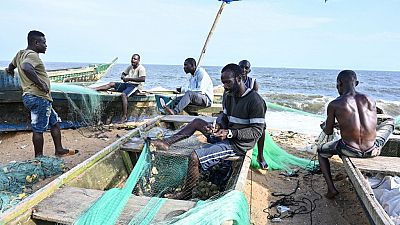

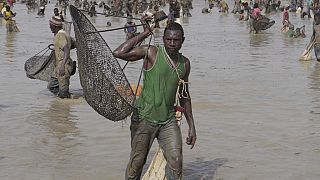
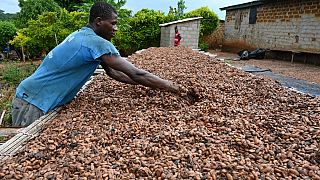
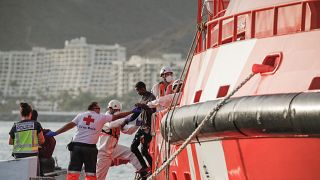
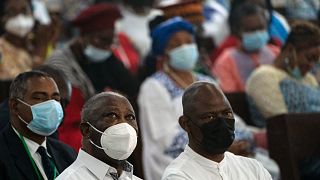

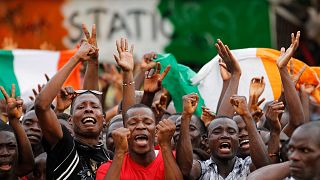



01:34
EU commits €1 billion to protect oceans under a new pact
02:25
São Tomé and Príncipe: helping fishers and their future
Go to video
Gabon withdraws from EU fishing agreement after 18 Years
Go to video
'Noradala': Centuries-old fishing festival in Guinea still going strong
01:09
NGOs sue Spain for ignoring illegal fishing threat to African coasts
02:32
Several missing as Kenya tightens border security after fishermen clash